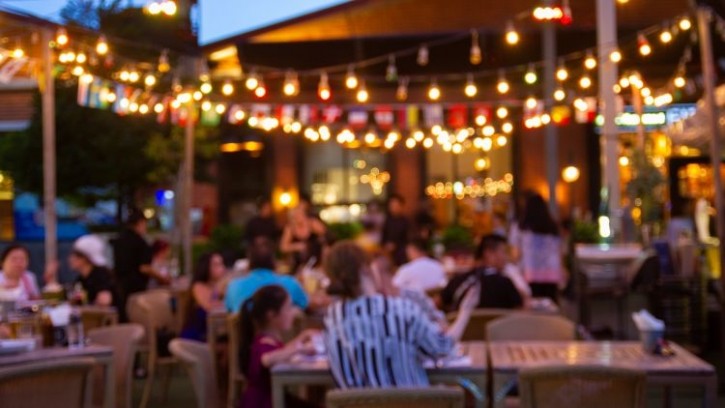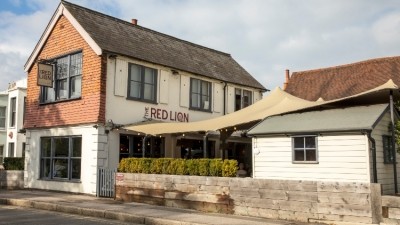LICENSING HUB - LEGAL WITH POPPLESTON ALLEN
A Jekyll and Hyde approach to outside areas?

This is the dilemma I find myself in when looking at recent developments announced by the Government with regard to the easements for pavement licensing and off-sales which were first announced on 22 July 2020 in the midst of the pandemic.
You will remember that as part of the rushed (but generally helpful) Business and Planning Act 2020 premises that had “on-sales” only licences were permitted to have off-sales, up to a pre-cut off time of 11pm simply by affixing a notice to their premises. Equally, the Government instituted a fast-track pavement licensing scheme, which has generally been regarded as a great success (not least because of its £100 fee).
It is difficult to know how many businesses have used these easements but certainly they have helped a good number maximise their outdoor spaces, both during the height of the pandemic and subsequently, and indeed branch out into deliveries or takeaways when perhaps the thought had previously never entered their heads. I am not aware of any particular horror stories either arising from the fast-track pavement licensing scheme or the automatic entitlement to off-sales.
So I was querulous as to why the Government is so keen to make permanent the fast track pavement licensing scheme when it announced this week it was not going to do the same for the off-sales easement. The Levelling Up and Regeneration Bill contains provisions which will make permanent the fast-track pavement licensing scheme, subject to an increased fee of £350 for a renewal and £500 for a new licence (as compared to £100 at the moment) and an overall 28 day consultation period compared to the 14 day at present.
End of automatic entitlement
This bill is presently trundling its way through parliament. Knowing that it is unlikely to obtain Royal Assent by the end of September 2023, the minister is proposing a further year’s extension by way of Statutory Instrument to the original fast-track pavement provisions, extending them (as they have been extended for the last two years) until 30 September 2024. This Statutory Instrument has been laid and is simply awaiting signature by the minister.
So, belt and braces with regard to fast-track pavement licensing – we have primary legislation going through parliament and in the meantime secondary legislation to shore up any time lag.
You would be forgiven for thinking that the Government might want to do the same thing with off-sales of alcohol. Not so, sadly. There was a consultation in May this year and as a result, the Government has decided that when the current easement expires on 30 September 2023, that will be the end of the automatic entitlement to off-sales up to 11pm.
The Guidance to the Licensing Act 2003 has been amended to suggest to Licensing Authorities that if a licensee wants to add off-sales permanently to their licence Licensing Authorities “may wish to treat” that application as a minor variation, particularly if there has been no impact on the licensing objectives when that operator has been taking advantage of the automatic easement under the Business and Planning Act 2020.
That “encouragement” for licensing authorities to at least actively consider treating an application to add off-sales to a licence as a minor variation rather than a major does of course help, but the legal test for a minor variation is that it could not adversely impact the licensing objectives, and it is very easy for a licensing authority, or indeed the police or environmental health with whom the licensing authority may correspond, to view a theoretical risk to the licensing objectives as a real risk, and refuse to deal with any application to add off-sales as a minor variation.
Full application
In those circumstances you are stuck with having to make a full application, paying the council fee, the newspaper advertising fee and full public consultation, together with delay.
Why has the Government chosen not to extend the off-sales easement? Good question. The Consultation Response quoted 65% of respondents did not agree to an automatic extension compared to 35% who did. That might be reason enough, but the Government in its Response says that “we will not be bringing an order to extend the provisions as the BPA only allows for an extension to mitigate an effect of the pandemic.” This strikes me as rather odd as it is exactly that justification – to mitigate an effect of coronavirus – that the Statutory Instrument extending the fast-track pavement licence provisions for another year is being made. I fear Dr Jekyll has been playing with his chemistry set again.
We have had three years of premises being able to trade with this automatic easement until a modest 11pm. There have always been provisions in the Business and Planning Act for an “off-sales summary review” so any premises that caused problems using the easement could have their entitlement removed.
And while we are on the subject, the guidance has also been amended to encourage licensing committees to consider counter-terrorism measures and conditions, particularly at larger or higher-risk venues and particularly with regard to health care provision in the event of an attack. These new provisions, in light of raised awareness around a Protect Duty/Martyn’s Law commence at paragraph 2.10.
Lastly, the Government has chosen not to continue the arrangement that has existed for 2022 and 2023 for temporary event notices, where the limits were temporarily increased for those years from 15 per premises to 20 and from an aggregate 21 days to 26. From 1 January 2024 the limits will revert to their original values, namely 15 per premises and 21 days in total. 63% of respondents opposed making permanent the increased allocation, although yet again the Government’s reasoning included the fact that the 2020 Act only allows for an extension to mitigate an effect of the pandemic.
- Andy Grimsey is a solicitor at Poppleston Allen solicitors.







